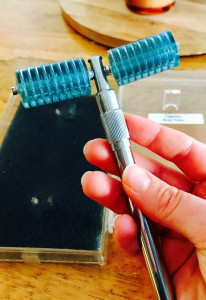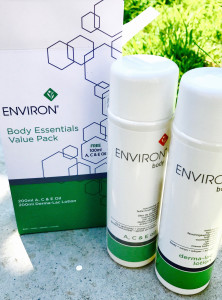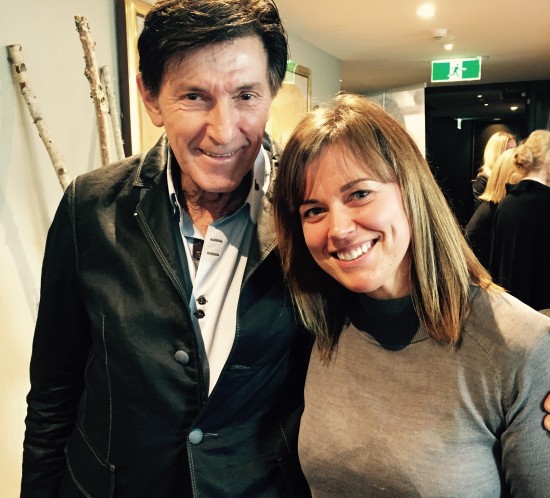Hormones Affect Our Skin At All Ages
Are you still getting red cystic breakouts? Are you shaking your head wondering “Shouldn’t this phase of my life be over, I’m older! I’m not a teenager!” As frustrating as it is, a lot of women experience these cysts. They are red, swollen and painful, can be located along the jaw bone, chin, forehead, and are commonly linked with menstruation or ovulation, with some cases being linked to diet. Hormonal acne is terrible, and for many women can seem incessant, and never ending.
Believe it or not, we can stop them from occurring altogether and we do this by supporting the organs, allowing these breakouts to heal.
Our body is made up of around 50 trillion cells that are comprised of nutrients. Our hormones act as the feedback loop, communicating between the nutrients. If there is an imbalance, which can be caused by poor diet, lack of sleep or an increase in chemicals, these hormones are unable to perform their jobs. The more we keep our blood full of key herbs, vitamins and minerals, the less stress we put on the hormones, and the less likely the skin and our menstrual cycles will be affected.
Hormonal Acne – How It Comes To Be
When hormonal acne comes to play, there is an increase of oil production beneath the skin. Ordinarily there is a healthy flow of oil to the surface which lubricates the skin. However, when there is too much oil, and it combines with the normal skin cells and other debris on the surface of the skin, it can clog the pores. When oil clogs the pores, bacteria go on a feeding frenzy. This causes inflammation.
It is important to remember that hormonal acne does not occur unless there is an oil problem under the skin. Because it’s under the skin, no amount of washing will ever eliminate hormonal acne. It must be cured underneath, and the only way to fix it is from the inside out.
There are many different hormones (namely Androgens) that affect acne. Here is a quick summary:
- Testosterone – The most prominent of the androgens, which causes oil production in the skin. Testosterone levels are the highest in the middle of your cycle. It is usually high in those who have diabetes, insulin resistance or PCOS.
- Estrogen – Fights acne and helps promote clear skin. If there are low estrogen levels (which can happen during the end of each menstrual cycle or during menopause) there can be breakouts.
- Progesterone – In high doses, it acts as an inflammatory agent and can cause acne to flare up. Progesterone levels are highest during the days leading up to menstruation, which explains why many women experience outbreaks at this time. Synthetic progesterone, such as that found in birth control pills, can also cause acne.
- DHEA-S – Cause oil production, and is a STRESS HORMONE produced in the adrenal glands. Women who are experiencing stress, whether from emotions, poor sleep, or under-feeding, have higher levels of DHEA-S levels.
What Are The Areas That Require Attention And What Can Help
Issue 1: Stress
Stress is not necessarily the cause of hormonal acne, but does exacerbate it, and prevent proper healing.
What can help: Cleaver supplements, meditating, spending time in nature, deep breathing, use calming essential oils like vetiver, lavender, ylang ylang.
Issue 2: Heat
Heat is inflammatory, and causes sweat, which can clog pores.
What can help: Cleaver AHAs and vitamin A
Issue 3: UV Rays
The sun’s rays are some of the most potent acne inflamers out there.
What can help: Medical grade SPF Environ Alpha Day Lotion
Protect the skin on your face with at least an SPF of 15, or consider wearing a hat in the summer months.
Issue 4: Inflammatory Foods
Inflammatory foods such as grains, dairy, nuts, and omega 6 vegetable oils can all contribute to poor gut health.
What can help: Enjoy preparing your home-cooked meals with whole foods.
Issue 5: Dairy
Dairy deserves special mention because it is a highly hormonal food. Pregnant cows produce several hormones designed for growth. Growth hormones can cause androgen levels to rise, as well as promote production activities that lead to acne.
What can help: Avoid dairy! I have seen enormous success with women with hormonal acne eliminating dairy for their skin.
Issue 6: Lack of Sleep
Sleep both enables healing and promotes healthy hormonal production.
What can help: Reducing stimulation before bed, like caffeine and blue lights from our smart devices; Adding supplements to your regime, such as good quality magnesium and adrenal support herbs.
I like to start my day with some good ol’ fashioned exercise. It’s a fantastic way to help balance hormonal levels and restore your sleep cycle.
Issue 7: Phytoestrogens
Phytoestrogens have the power to act as estrogens in the body.
What can help: Reduce the amount of soy, flax, legumes and nuts in your diet.
Issue 8: Hypothyroidism
Without sufficient levels of T3, the active form of thyroid hormone, in the blood, a woman’s skin cells lack the ability to heal properly. Many women who suffer hypothyroidism can suffer chronic acne.
What can help: Low carbohydrate diets. Having sufficient glucose stores is important for skin healing, and can speed the recovery of acne lesions. Glucose is also helpful for preventing hypothyroidism.
For more information, and careful diagnosis, reach out to Kat, #TheSkinWizard




